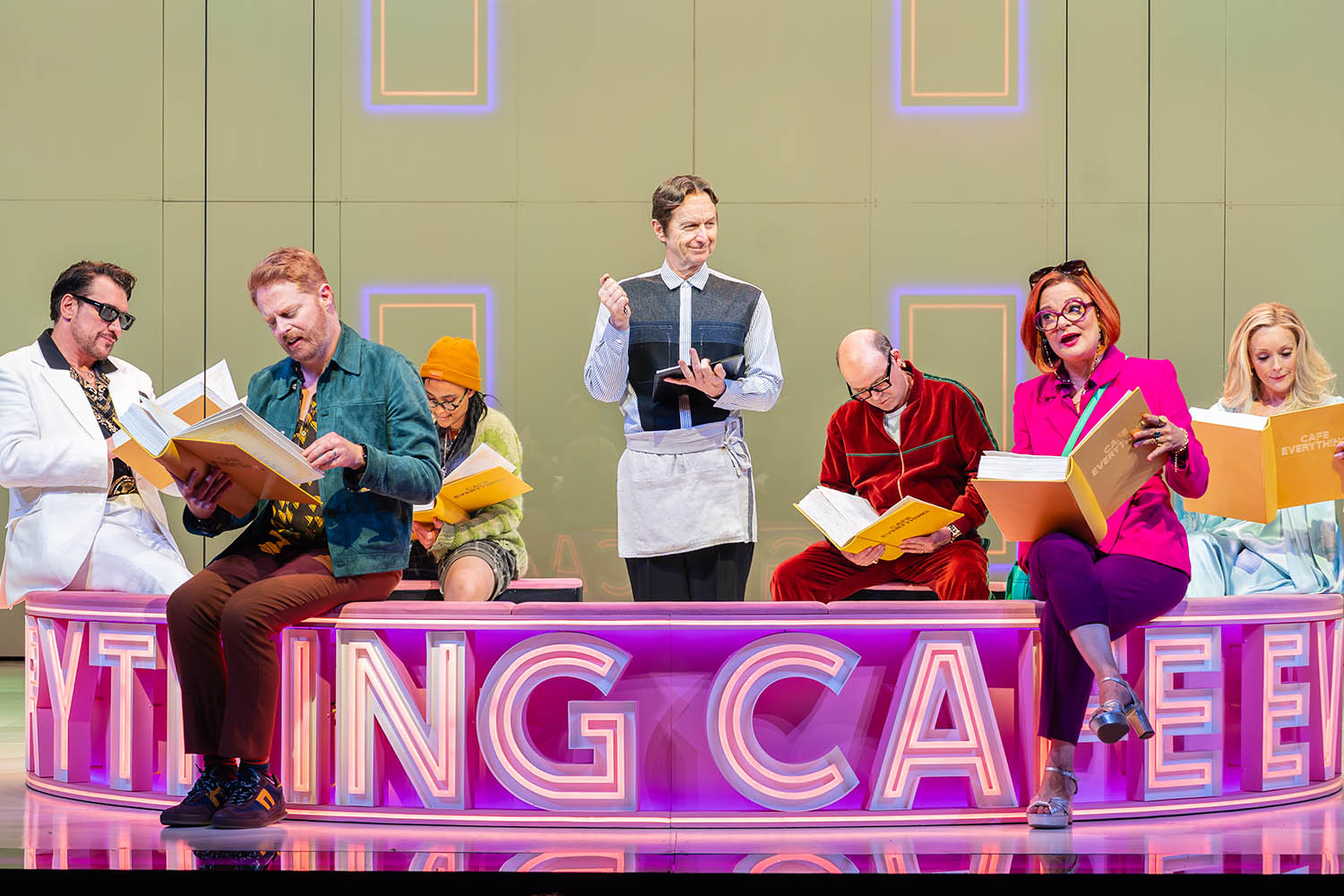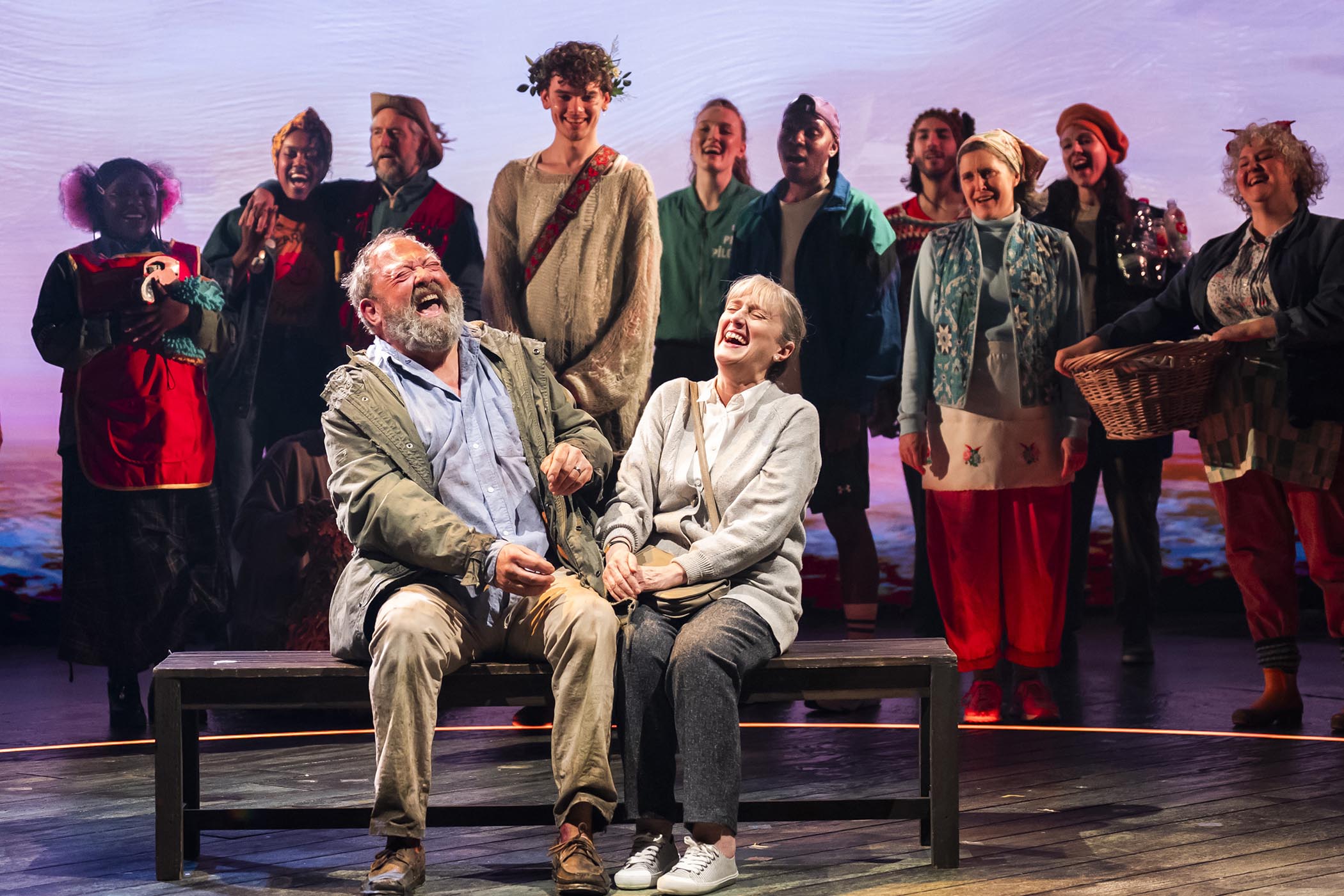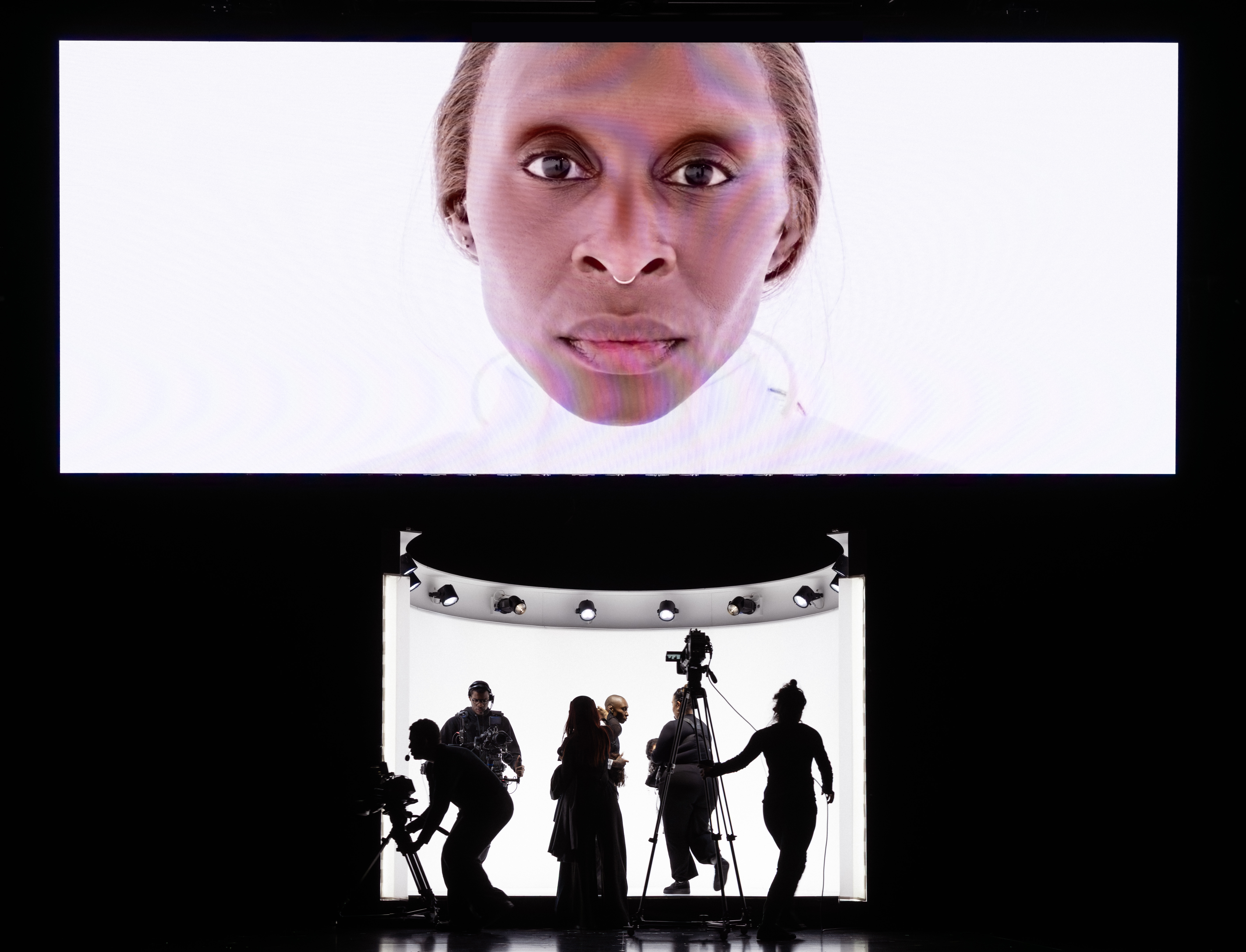Here We Are
Lyttelton, London SE1; until 28 June
In 1970 Stephen Sondheim looked ready to scalp the musical. Returning from seeing Company, Alan Jay Lerner, lyricist for the gorgeously successful My Fair Lady, wept, declaring that his way of writing was over. Which now looks both more and less than the truth.
Mid-20th-century shows have not disappeared, but are being excavated for dark matter.
Meanwhile, Sondheim’s influence has percolated well beyond the musical. His rhythms and rhymes, his scepticism and sorrow have made audiences listen more acutely not only to sung but to spoken lines.
The restless variety of his themes – Japan’s relationship to the west, the creation of a pointillist masterpiece, pies stuffed with priests – has opened up the stage.
The UK premiere of his last work is unmissable, fascinating and sometimes wan. Here We Are was unfinished when Sondheim died in 2021, but completed by his collaborator, book writer David Ives. Director Joe Mantello was also long involved in the development, which took 10 years, with much hesitation, regrouping and retitling.
The task was momentous: to weld together and adapt for the stage two mighty films by Luis Buñuel.
The Discreet Charm of the Bourgeoisie, filmed in French in 1972, features a group of chic snobs who roam from dining room to restaurant, driven bonkers by their failure to land a supper.
In The Exterminating Angel, released a decade earlier (though its action forms the latter part of the stage show), a group of bourgeois at an embassy soiree find themselves inexplicably trapped by an unidentifiable force: unable to leave, they go haywire in the course of a night. The characters, different in the two films, are melded and the action transplanted to the US.
Newsletters
Choose the newsletters you want to receive
View more
For information about how The Observer protects your data, read our Privacy Policy
Sondheim is a one-man refutation of the stubborn claim that Americans lack irony
Sondheim is a one-man refutation of the stubborn claim that Americans lack irony
Neurosis, obsession, savage disregard masquerading as elegant distraction: this is a ripe field for Sondheim. His needling rhythms and drilling repetitions, the lines that break off, suggestively hovering: all this, crucially orchestrated by the essential Jonathan Tunick with his marvellous woodwind army, acutely suggests spruce self-esteem papering over a vacuum.
Sondheim is a one-man refutation of the stubborn claim of the English intelligentsia that Americans lack irony. Though there may be a difference of degree. Sondheim has talked of irony as being “a kind of subtext”. For many English intellectuals, irony is the text itself.
These musical qualities and some tremendous origami wordplay buoy up the angular first half of Here We Are. “We do expect a little latte later,/But we haven’t gotta lotta latte now,” smirks Denis O’Hare as a kamikaze waiter. He and Tracie Bennett, who pulls off an outrageously enjoyable Édith Piaf imitation, have the best of the linguistic invention, in multiple small roles: Sondheim’s description of his lyrics as “short stories” is not at full stretch here but it floats in the air.
Still, an edge is missing from Mantello’s production. Though smooth and forceful, it is not seductive. David Zinn’s design yells 21st-century affluence: a luxuriously pillared official residence; a bare white box like an uncomfortable art gallery, with a panel of dots in one corner gesturing to Damien Hirst and perhaps to Sondheim’s pointillist Sunday in the Park With George.
Buñuel’s Discreet Charm is well named, dripping in the stuff that makes the English want to be French: the heavy white cloths on rough wood tables, the right rustic pâté, Stéphane Audran’s bob and hauteur (both as sharp as Anna Wintour’s but never seeming to be part of a kit).
The film provokes envy as well as ridicule: that is what makes the satire satisfying. In the translation from Europe to the US a bluntness has been introduced, an ease has gone missing. Characters are deftly summoned by an accomplished cast, which includes Rory Kinnear, Jane Krakowski and Martha Plimpton. Neatly choreographed by Sam Pinkleton, they move like percussive instruments, yet their attributes don’t extend beyond those of plastic surgeon or interior designer: they are too easy as targets.
The Exterminating Angel – rolling in and out of dream, involving a bear, an undercover terrorist, a heart attack, a romp (“We can make love and then kill ourselves”) and free-floating angst – might seem unstageable had it not in 2016 been staged as opera, toweringly, twistingly, magnificently, by Thomas Adès. Sondheim’s hand is absent from this part of the evening: as all harmony fades from the action, music leaves the stage.
Appropriate perhaps, a tribute possibly – but it is hard to make the case for it as drama: Buñuel’s surreal roar turns into an agreeable meander through the mildly bizarre. Here We Are: not Sondheim’s best place but still pointing towards a new way of living for the musical. We’ll find a way of forgiving the rest.
Photograph by Marc Brenner



